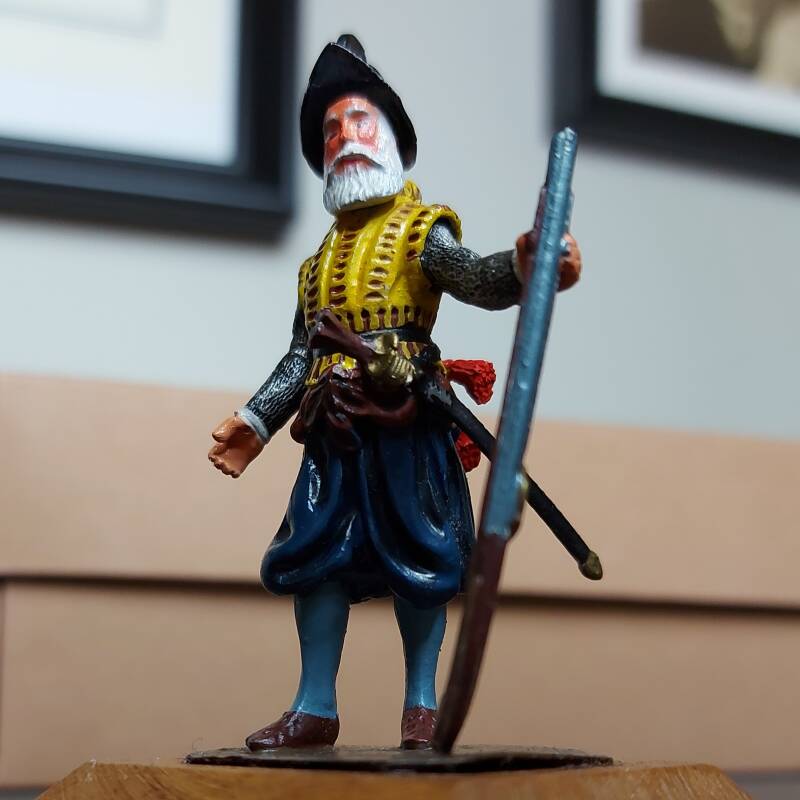


Landsknechts: Mercenary Warriors of Renaissance Europe
In the annals of history, tales of brave soldiers and audacious mercenaries resonate through the ages. Among them, the Landsknechts stand out as a distinctive and remarkable group of mercenary warriors during the late 15th to early 17th centuries in Europe. With their unique appearance, formidable battlefield skills, and intriguing societal dynamics, the Landsknechts left an indelible mark on the military landscape of the Renaissance era.
Emergence and Formation:
Originating in the late 15th century, particularly within the Holy Roman Empire, the term "Landsknecht" draws from the German words for "land" and "servant." These soldiers were foot soldiers drawn from the common populace, finding employment as mercenaries for various European powers, including the Swiss, Habsburgs, and Italian city-states.
Distinctive Attire:
The Landsknechts were unmistakable for their flamboyant attire. Their outfits, adorned with slashed sleeves, ornate puffed pants, and plumed hats, were a stark departure from the standard soldier's uniform. This attire not only set them apart visually but also served to strike fear into their adversaries and bolster their reputation as fierce and formidable fighters.
Battlefield Mastery:
Renowned for their combat prowess and innovative strategies, Landsknechts were armed with an array of weapons such as pikes, halberds, and swords. Their signature formation, the "pike square" or "schiltron," featured tightly packed ranks armed with long pikes, providing both offense and defense against cavalry charges.
Internal Structure and Reforms:
Beyond their battlefield skills, Landsknecht units were characterized by a complex internal hierarchy. Their companies, often led by captains with significant authority, implemented reforms that stressed training, discipline, and cohesion within their ranks. Notably, leaders like Georg von Frundsberg played instrumental roles in shaping the effectiveness of Landsknecht forces.
Legacy and Decline:
The reputation of the Landsknechts as fearsome and adept mercenaries spread widely. Their involvement in major conflicts such as the Italian Wars and the Thirty Years' War underscored their importance. Nevertheless, the ascendancy of firearms on the battlefield eroded their traditional tactics. Additionally, the rise of standing armies signaled the decline of the Landsknecht tradition, as professional soldiers gradually replaced the role of hired mercenaries.
In Retrospect:
The Landsknechts' legacy persists as a captivating chapter in the history of warfare. Their distinctive fusion of flashy fashion, disciplined combat prowess, and colorful narrative offers insights into the multifaceted nature of mercenary culture during the Renaissance. Although their relevance waned with evolving warfare methods, the Landsknechts serve as a reminder of the diverse roles individuals and groups play in the tumultuous theater of conflict.


Add comment
Comments